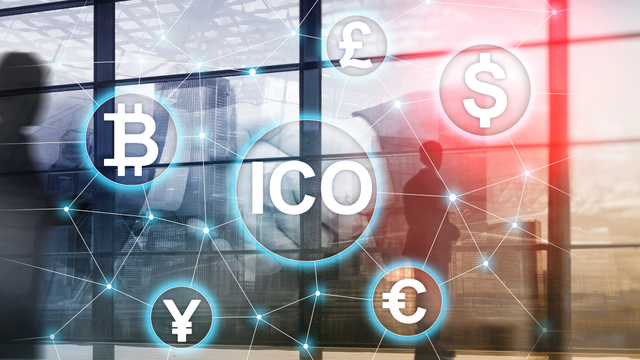Why and How ICO Software Development is Reshaping the Gaming Industry?
The gaming industry has undergone a remarkable transformation in recent years, thanks to the advent of blockchain technology and Initial Coin Offerings (ICOs). This revolutionary combination has given rise to a new era in gaming, where decentralized applications and innovative funding models are reshaping the landscape. In this blog post, we will explore why and how ICO software development is playing a pivotal role in reshaping the gaming industry.

Introduction to ICOs and Blockchain in Gaming
Initial Coin Offerings (ICOs) have become a popular method for fundraising in the blockchain space. ICOs involve the issuance of digital tokens, often based on blockchain technology, to fund new projects. The gaming industry, always at the forefront of technological advancements, quickly embraced the potential of ICOs to revolutionize the way games are developed, funded, and played.
Blockchain technology, the backbone of cryptocurrencies, provides a decentralized and secure platform for transactions. By incorporating blockchain into gaming, developers can create transparent and tamper-proof ecosystems, enhancing trust and fairness. The immutability of blockchain ensures that in-game assets are truly owned by players, paving the way for a new gaming economy.
Funding Innovation Through ICOs
Traditionally, game development has been a costly venture, with studios relying on publishers or traditional crowdfunding models. ICOs, however, have democratized fundraising for game developers. By issuing tokens, developers can sell them directly to the community, bypassing intermediaries and gaining direct support from players who believe in the project.
Token sales during ICOs can provide developers with the necessary capital to bring their vision to life. This decentralized funding model allows smaller developers with innovative ideas to compete on a global scale, fostering diversity and creativity within the gaming industry. Players, in turn, become stakeholders in the success of the game, creating a symbiotic relationship between developers and the gaming community.
Tokenization of In-Game Assets
One of the most significant impacts of ICO software development in gaming is the tokenization of in-game assets. Blockchain allows developers to create unique, non-fungible tokens (NFTs) representing in-game items or characters. These NFTs can be bought, sold, and traded on blockchain marketplaces, providing players with true ownership of their digital assets.
This shift from centralized control of in-game assets to a decentralized, player-centric model has far-reaching implications. Players can monetize their time and effort by trading valuable in-game items, creating real-world value for virtual possessions. Developers, on the other hand, can introduce scarcity and uniqueness to in-game items, enhancing the overall gaming experience.
Enhanced Security and Transparency
ICO software development leverages the security features of blockchain technology to address long-standing issues in the gaming industry, such as fraud, cheating, and data manipulation. Blockchain's decentralized nature ensures that game data is tamper-proof, reducing the risk of cheating and hacking. Smart contracts, self-executing agreements with the terms of the contract directly written into code, enhance transparency and automate processes like in-game transactions.
Players can trust that their in-game purchases are secure, and the fairness of the game is guaranteed by the underlying blockchain infrastructure. This newfound transparency builds trust between developers and players, fostering a positive gaming environment.
Community Engagement and Governance
ICO-funded games often involve the community in decision-making processes through decentralized governance models. Token holders can participate in key decisions related to the game's development, updates, and even the direction of the project. This level of community engagement not only strengthens the bond between developers and players but also ensures that the game evolves in a way that aligns with the community's interests.
Decentralized governance is a departure from traditional top-down decision-making, allowing for a more democratic and inclusive approach to game development. Players feel a sense of ownership and pride in contributing to the success of the games they support through ICOs.
Challenges and Future Outlook
While ICOs and blockchain have brought about significant positive changes in the gaming industry, challenges remain. Regulatory uncertainties, market volatility, and scalability issues are among the hurdles that developers and investors must navigate. However, as the technology matures and regulatory frameworks evolve, these challenges are likely to be addressed.
The future of gaming powered by ICO software development holds immense promise. The combination of decentralized funding, true ownership of in-game assets, enhanced security, and community engagement is reshaping the industry into a more vibrant, transparent, and player-centric ecosystem.
Conclusion
ICO software development is playing a transformative role in reshaping the gaming industry. The infusion of blockchain technology and decentralized funding models has unleashed a wave of innovation, empowering developers and players alike. As the industry continues to evolve, the marriage of ICOs and gaming is set to redefine how games are created, funded, and experienced in the digital age.